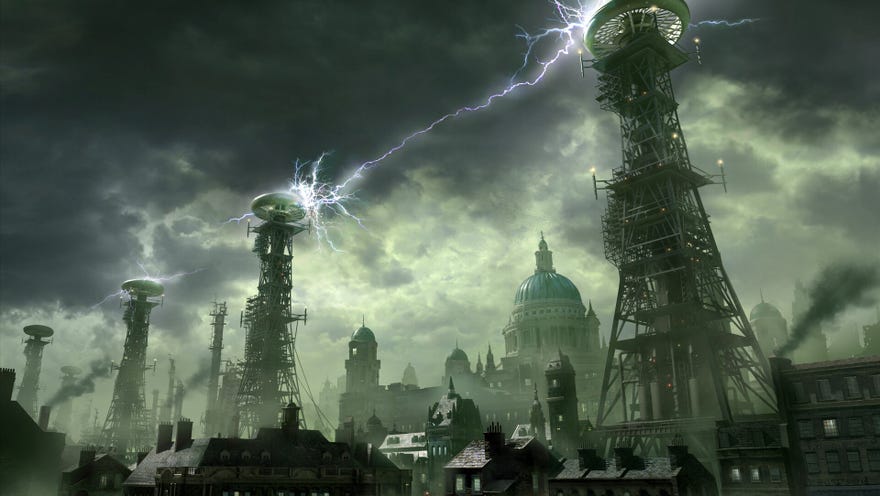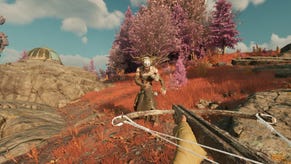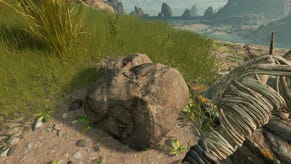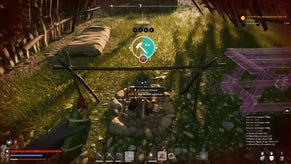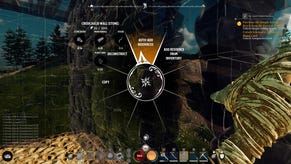Nightingale's great hope is the city hidden at its foggy heart
Inflexion share plans for the urban side of their survival sim
Sometimes I wonder whether every genre fantasy RPG or RPG-inflected game is essentially a journey towards the Big City. Most such games start you off on the periphery of the world, out in the sleepy and/or brutish hamlets of FirstActShire, Chosen One County, and send you on a loose quest towards the cosmopolitan centre, where you'll typically learn about the ultimate villain of the piece, gain access to the juiciest concentration of shops, crafting facilities and quest-givers, and glean some hint at the location of the endgame dungeon. Sometimes the quest takes days of playtime, as in Baldur's Gate 3. Sometimes it takes less than an hour, as in the original Destiny. It's a common-enough device that when an RPG starts you off in the Big City, like Dragon Age 2, or creatively "provincialises" the Big City, like Roadwarden, I feel slightly unnerved.
It's intriguing to place the premise of a journey to the Big City against the production rhythms of, say, an early access game like Nightingale. The game is named for "one of - if not the - most magical cities in the world," according to Inflexion Games boss Aaryn Flynn. It's the site of great advances in the study of Fae magic and Realmwalking, and the seat of the game's squabbling major factions. As Nightingale begins, this huge, enchanted metropolis and all its wonders has been obscured by the Pale - a kind of interdimensional cosmic fog, which traps you and your fellow Realmwalkers in the overgrown and untamed dimensions at the edge of the multiverse.
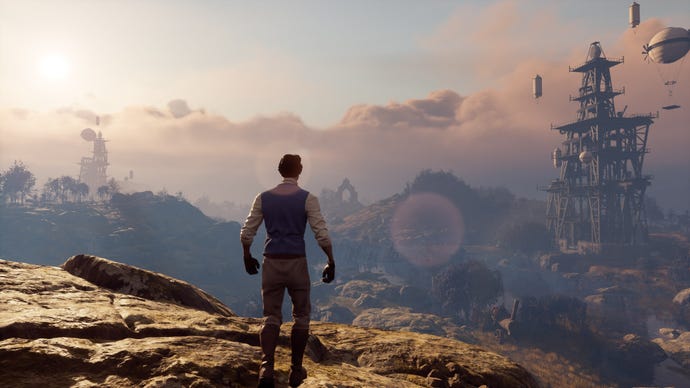
While it's possible to raise towns of your own in the wider Fae Realms, the whole game is about returning to this city in the mists, and using its knowledge and resources to identify the cause of the Pale. But that's the in-game narrative, of course: the development story is that Nightingale doesn't exist yet. Inflexion are still bolting it together, which creates a gentle dramatic irony: for players, the city of Nightingale is a lost past they are trying to recover, whereas for Inflexion, it's the future, the painstakingly crafted jewel in the crown of the game's early access career, which hasn't gotten off to an amazing start.
"In bringing out Nightingale as a city, we want to do two things with it," Flynn explained in conversation with me before the early access launch. "One is to expand the social hub idea from the Watch, grow that and give you places to go explore, places to go learn things. But really then it becomes, what are the quests and adventures you can go on, because these various factions are setting you up to go up to new Realms, and which do you align with? Or do you go with all of them? Are you just basically a Realmwalker for the highest bidder, right? Oh, you've got a recipe for a spell that I want? Well then I'm going to do your dirty work. Or you've got a noble cause I that I agree with, I'm going to help you. So it creates that storytelling opportunity for us, and then gives people a social space."
Inflexion will introduce Nightingale to the game quarter by quarter, based on a map the artists drew up a long time ago. As a piece of architecture, it appears to be heavily inspired by London, which makes sense for a game badged as "gaslamp fantasy". "When I go to London and I end up in an alleyway, I feel like I'm 150 years ago in Victorian times, right?" Flynn continued. "It's tight, narrow alleyways, it's extremely organic in how it's been built up, right. Everything kind of attaches to each other, and it doesn't feel like there's the hand of a city planner, doing anything. It feels like everything's based on needs and urgency and stuff."
Speaking as a 15-year resident of the Big Smoke myself, I'm always a little caught out when developers from Canada and the US marvel at London's higgledy-piggledy construction, which reflects centuries of London obsessively growing over and around itself at the behest of new technologies, social changes, and periods of prosperity or disaster. For me, the exotic burgs are the ones across the pond, the block-built SimCities, organised by letter and number, that seem to have sprung up fully-formed from the tarmac.
Where the game's outer Fae realms are procedurally generated, Inflexion are designing the city of Nightingale "by hand" so that players can find quests, resources and each other without much difficulty. "That way, it's consistent," Flynn went on. "If I say, oh, Edwin, you should go talk to this guy, he's selling something tonight, you know where to go. If it's procedural it would be like, he's in the corner of an alley on my map, he's up a tower on yours." Which is fair enough, but given that I still routinely get lost in parts of London I visit often, I do wonder whether another procedurally generated map would have been more fitting. Perhaps it could have worked like a grander, steampunk incarnation of We Happy Few's ball-tripping BrexitLand.
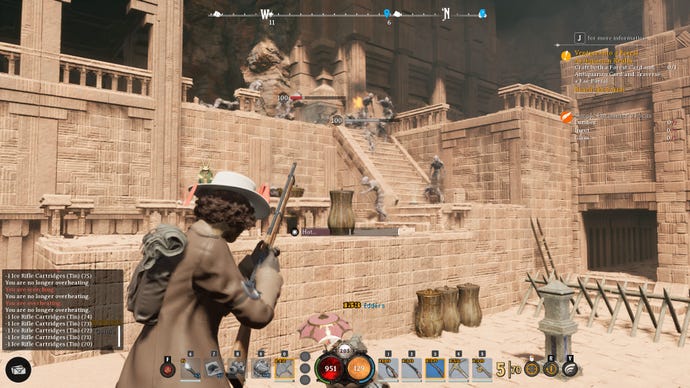
Generally speaking, I'm keen to play games in which cities aren't gilded "hubs" that draw in the budding adventurer and then punt you boldly outward towards the final act. I'm probably making this up, but I feel like videogame cities today are slipping away from the old European daydream of the city as the height of civilisation, representing human life at its richest, most structured and most possible. Today's videogame-villes are being crafted in the face of climate change, economic precarity, the on-going undeath of postmodernism, and the sense that industrial capitalism generally is a busted flush. As such, they have become fantastical and elusive and broken, more like cities desperately dreaming themselves - a little bit Fae, in Nightingale's terms.
I'm thinking principally of the outbreak of "nomad city" management games, featuring settlements that can fly or walk or even travel between planets - cities that have effectively given up their vaunted "world hub" status, perhaps to save themselves from an encroaching disaster. I would love a bigger-budget RPG or survival game, and especially one that takes hefty inspiration from the fickleness of fairy stories, to do something similar. I'm not sure what it would look like - that's kind of the appeal. But it'd be wonderful to reach the centre of Nightingale and discover a city that is even wilder and less settled than anything you'll meet in the woods.
